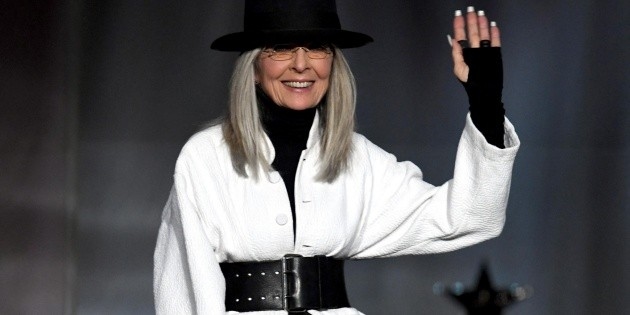As the language controversy escalates, Felipe VI called for harmony in Arequipa.

King Felipe VI launched a message of harmony this Wednesday at the opening ceremony of the 10th International Congress of the Spanish Language , where he championed the language as a tool "to seek peace and consensus" and to "strengthen the voice of Spanish-speaking nations" in an "uncertain" global panorama.
 King Felipe VI inaugurated the 10th International Congress of the Spanish Language at the Municipal Theater of Arequipa in the presence of authorities and academics, including the highest representatives of the Cervantes Institute, Luis García Montero, and the Royal Spanish Academy (RAE), Santiago Muñoz Machado. Photo: PROMPERÚ
King Felipe VI inaugurated the 10th International Congress of the Spanish Language at the Municipal Theater of Arequipa in the presence of authorities and academics, including the highest representatives of the Cervantes Institute, Luis García Montero, and the Royal Spanish Academy (RAE), Santiago Muñoz Machado. Photo: PROMPERÚ"At a time when diplomacy is so necessary, our language must serve to seek peace and build consensus ," said the king in a solemn session at the Municipal Theater of Arequipa , attended by authorities and academics, including the highest representatives of the Cervantes Institute, Luis García Montero, and the Royal Spanish Academy (RAE), Santiago Muñoz Machado.
On behalf of the Peruvian government, Secretary General of the Ministry of Foreign Affairs Eric Anderson attended the event following the dismissal of former President Dina Boluarte last Thursday and the appointment of José Jerí, the current Speaker of Congress, as president of the country.
At a congress marked by the government crisis in Peru and the clash between the top representatives of the two main organizing institutions , Felipe VI recalled that this meeting must be "an example of a community of values: a conversation about what unites, not what separates."
It's simple to explain: the incompetence of successive foreign ministers, especially the most recent, has caused us to lose Hispanic America. The only diplomatic link that remains with it, thanks to the Royal Spanish Academy (RAE), is the Spanish language. Foreign Affairs, to…
— Arturo Pérez-Reverte (@perezreverte) October 15, 2025
The bidding war between the heads of the Royal Spanish Academy (RAE) and the Cervantes Institute gained new interlocutors this morning. Argentine writer Martín Caparrós took to social media to express his opinion: "Today, thanks to Vargas Llosa's clever approach, the Arequipa Language Congress opens. I'm shocked to see so few writers among the guests. It didn't used to be like this, but now it is," he wrote.
And he added: "If the language belongs to those who are there, we're screwed," a comment that could align with the position of the poet and director of the Cervantes Institute, Luis García Montero.
Spaniard Arturo Pérez Reverte also expressed his opposition on social media: "It's easy to explain: the incompetence of successive foreign ministers, especially the most recent, has caused us to lose Hispanic America. The only diplomatic link of prestige that remains with it, thanks to the RAE, is the Spanish language," he said.
Pérez Reverte added: "The Ministry of Foreign Affairs, through its mediocre and lackey director of the Cervantes Academy (a brainchild of Albares), is trying to get its hands on it too; to colonize the RAE's natural sphere, elbowing its way into the spotlight in photography. And if possible, for the near future, prepare to take over the Academy as well, if it's allowed to. In other words, to put it at its service and contaminate it as it has done with all Spanish institutions. In this case, this amounts to a sinister mix of conflicting egos and bad faith ."
Today, thanks to Vargas Llosa's cleverness, the Language Congress opens in Arequipa. I'm shocked to see so few writers among the guests. It didn't used to be that way, but it is now. If the language belongs to those who are there, we're screwed. pic.twitter.com/5zTDQYkVoB
— Martín Caparrós (@martin_caparros) October 14, 2025
Far from these tug-of-wars, the King of Spain defended the language as "a core part of the whole of Hispanic heritage that endures over time and can well strengthen our future capabilities in the face of the growing complexity of the world," a "thriving, dynamic language, a point of convergence for the entire Spanish-speaking community."
And he expressed confidence that the conference will serve as a forum for reflection on " how we can give our language an even more strategic focus , helping us project our voice in an uncertain global landscape."
Felipe VI arrived in Arequipa yesterday afternoon and was able to visit the recently reopened Mario Vargas Llosa House Museum. "Our language is for us, Spanish speakers, what Arequipa was for Vargas Llosa: the family home, a space with more than 600 million speakers, fertile in communication, science, literary creation, ideas, and projects," he said.
 King Felipe VI inaugurated the 10th International Congress of the Spanish Language at the Municipal Theater of Arequipa in the presence of authorities and academics, including the highest representatives of the Cervantes Institute, Luis García Montero, and the Royal Spanish Academy (RAE), Santiago Muñoz Machado. Photo: PROMPERÚ
King Felipe VI inaugurated the 10th International Congress of the Spanish Language at the Municipal Theater of Arequipa in the presence of authorities and academics, including the highest representatives of the Cervantes Institute, Luis García Montero, and the Royal Spanish Academy (RAE), Santiago Muñoz Machado. Photo: PROMPERÚRegarding the theme of interculturality and racial diversity, one of the conference's programmatic pillars, the monarch recalled that "we live in a mixed world" and that "no language was created to be a barrier or a wall."
He also reflected on the other two themes of the conference: clear language and artificial intelligence. "In these hectic times, with information that is immediate and not always accurate, we must insist on proximity, simplicity, and transparency . The epitome of this discourse is clear and accessible language," he emphasized.
He also highlighted the "commendable work" of the Pan-Hispanic Network for Clear and Accessible Language, which just held its second convention in Lima.
Regarding AI, he emphasized the "important role" that the second language on the planet in terms of number of native speakers plays in this area. " Let's continue working together so that AI also draws on Spanish , and on sources that help preserve the quality, accuracy, and unity—within the diversity—of the language."
 King Felipe VI inaugurated the 10th International Congress of the Spanish Language at the Municipal Theater of Arequipa in the presence of authorities and academics, including the highest representatives of the Cervantes Institute, Luis García Montero, and the Royal Spanish Academy (RAE), Santiago Muñoz Machado. Photo: PROMPERÚ
King Felipe VI inaugurated the 10th International Congress of the Spanish Language at the Municipal Theater of Arequipa in the presence of authorities and academics, including the highest representatives of the Cervantes Institute, Luis García Montero, and the Royal Spanish Academy (RAE), Santiago Muñoz Machado. Photo: PROMPERÚAlso speaking at the formal session were García Montero and Muñoz Machado; writers Juan Gabriel Vásquez, Giovanna Pollarolo, Oswaldo Chanove, and Javier Cercas; the Ibero-American Secretary General, Andrés Allamand; and the representative of the Peruvian government, Eric Anderson.
Following this session, Felipe VI will attend a luncheon for dignitaries at the Convent of Santa Catalina de Siena, and in the afternoon he will participate in the plenary session honoring Mario Vargas Llosa.
Clarin


%3Aformat(jpg)%3Aquality(99)%3Awatermark(f.elconfidencial.com%2Ffile%2Fbae%2Feea%2Ffde%2Fbaeeeafde1b3229287b0c008f7602058.png%2C0%2C275%2C1)%2Ff.elconfidencial.com%2Foriginal%2F81b%2F90d%2F590%2F81b90d590517ddfe68c7a07078d8783c.jpg&w=1280&q=100)
